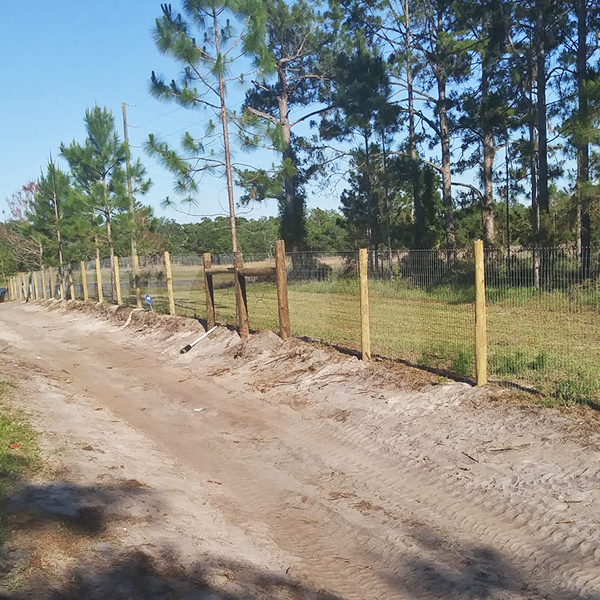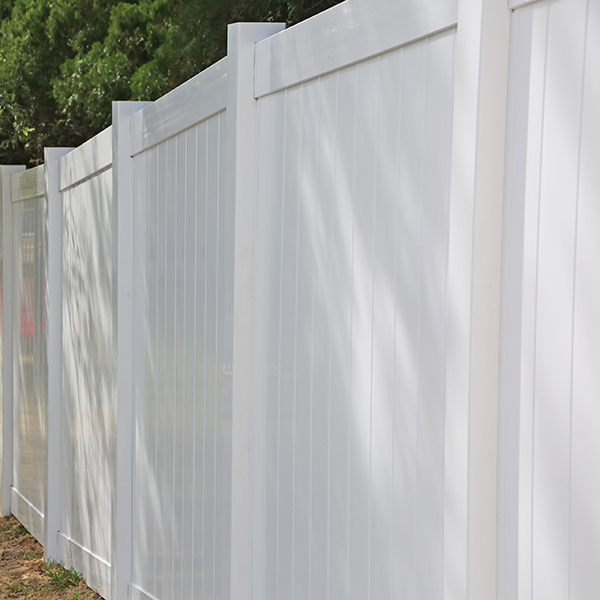Considerations When Installing a Fence for Livestock or Pets
Modern fencing can meet many needs for your property including ensuring privacy and protection, marking boundaries, reducing noise and keeping pools safe. When installing a fence for livestock or pets, certain
 Livestock fences
Livestock fences
With all fence installations, you’ll want to work closely with your fencing contractor to determine where on the property the fence will be installed and address any issues that might require additional work such as removing sections of in-ground rocks or stones, re-channeling water drainage paths, etc. When building a fence to contain livestock, a lot of the fence specs will be dictated by the type of livestock you have. Cattle will need to be secured by a fence that’s either very strong or one that includes electric current conductors. Cattle won’t jump a fence of appropriate height, but they may push against it and destroy it. Smaller animals like sheep and goats may not require a super-strong fence, but some of these animals are good jumpers, so take that into consideration when deciding on the fence height. Horses often are quite adept jumpers, so a four-foot or taller fence might be necessary to keep the animals in their enclosure. Metal fencing and wood farm-style fencing with gaps between posts for visibility are ideal for most livestock fence installations. Both types of fences can be built as tall as necessary and can be set in concrete for stability.
Pet fences
The kind of pets you have will tell you what type of fence you should build to contain them. Here are some guidelines.
 Chain link fencing isn’t ideal for dogs or other pets who are climbers
Chain link fencing isn’t ideal for dogs or other pets who are climbers
If you’re planning on a wood, vinyl or metal fence with openings between the posts, make sure the openings are more narrow than your pet
For dogs and other digging pets, a cement foundation below the ground along the fence line, chicken wire along the base of the fence or an electrical guard may be necessary
Smaller pets that aren’t traditional climbers or jumpers such as rabbits, pigs, turtles and chickens don’t require a tall fence but the gaps between the fence posts appropriately narrow – or build a solid wood or vinyl fence
If you have a cat that you want to keep contained on your property, a relatively tall fence likely will be necessary – “slick” materials such as PVC and aluminum are good choices
Pet dogs that could become neighborhood nuisances because of their barking should have a solid privacy fence that reduces their barking noise and prevents them from seeing the million and one things they feel obligated to bark at
Pet fences can be built from many different types of fencing material including wood, metal/aluminum, chain link and vinyl/PVC. It’s important to remember that while any fence built by an experienced, licensed contractor can look fantastic on your property, not every material and style will be suited for your specific pet needs. A Perfect 10 Fencing of Brooksville, FL, will help you work through the details necessary to build the “perfect 10” livestock or pet fence. We’ll share the pros and cons of different fencing materials, consult on the ideal height of the fence and work through any terrain challenges that might exist. Get the fence you’ve always wanted installed by licensed, professional fence builders by calling (352) 606-2623.


